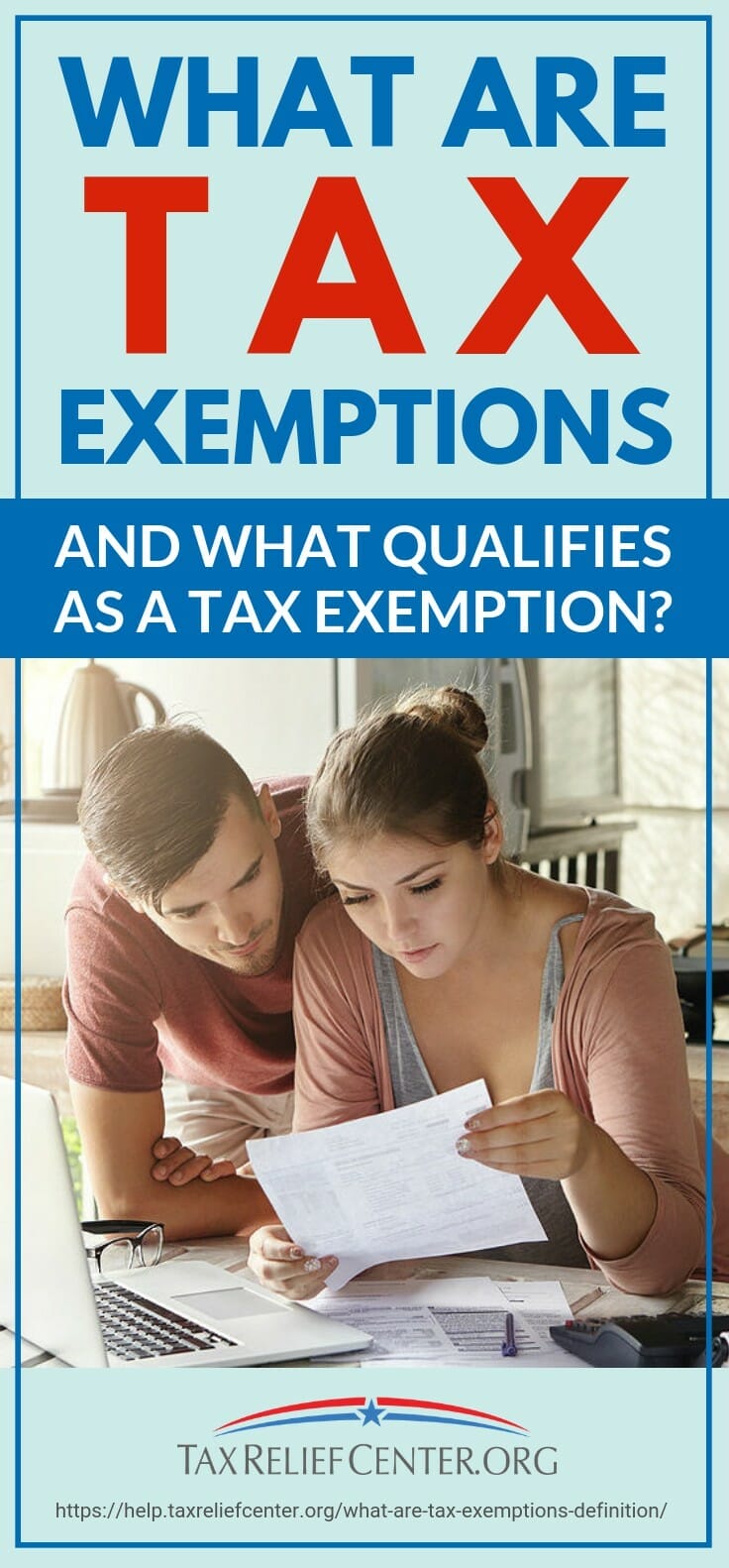Anyone who is filing taxes should ask the right questions that may benefit them in the long run, such as what are tax exemptions and what do they need to qualify? Understanding them can help you reduce your tax liability.
What Are Tax Exemptions? | Learn Its Definition and More
In This Article:
How Do Tax Exemptions Work?
"How do yields, ratings and tax exemptions work?" Read our 7th chapter. #munibonds http://t.co/ax0VZl3qls pic.twitter.com/3zT5R3qLwY
— Jase Wilson (@jase) June 18, 2015
What are tax exemptions? These are different from tax deductions and tax credits. Tax exemptions are a form of tax relief that directly reduces your taxable income.
There are two general types of tax exemptions: those for individuals filing personal tax returns and those for organizations, which would otherwise pay corporate income tax.
For personal exemption, each reduces the adjusted gross income (AGI). In other words, every exemption you take will exclude some of your personal income from being taxed.
The exact amount each exemption deducts from a taxpayer’s AGI usually changes each year. For the 2017 tax year, every exemption reduced an individual’s gross income by $4,050. A person who qualified for 10 exemptions would see their taxable income decreased by $40,500.
Certain organizations can also achieve a tax-exempt status. The other details will be below this article.
Those that qualify do not have to pay any federal income tax on the things they purchase and sell. Tax-exempt organizations can also qualify for exemption from other types of taxes such as property or sales taxes as well as state and local taxes.
Tax Exemptions for Individuals
What are tax exemptions for individuals? They fall into two categories: personal and dependent tax exemptions.
Personal Tax Exemptions
If you file income tax as a single taxpayer, you can claim income tax exemptions for yourself as long as no one else has claimed you as a dependent on their tax return.
Married couples who file a joint return can claim a tax exemption for each spouse (for a total of two tax exemptions). If you are married but file a separate return from your spouse, you can only take a tax exemption for your spouse if they are not filing their own tax return, do not have any gross income, and are not being claimed by another taxpayer as a dependent.
Keep in mind you must be married on the final day of the tax year to qualify to take a tax exemption for your spouse. If you and your spouse obtain a final separation or divorce decree on December 31 or before, you cannot take an exemption for them.
If one spouse passes away during a tax year, the surviving spouse may still take a tax exemption for them on that year’s tax return.
Dependent Tax Exemptions
As long as you (and your spouse if you are filing jointly) cannot be claimed as dependents by another taxpayer, you can take one exemption for each of your qualified dependents. Most of the time, dependents are your children who live with you for at least half of the year, who make less than half of their necessary financial support, and who are under 19 (or 24 for full-time students).
State Tax Exemptions for Individuals
What are tax exemptions for individuals at the state level? Different states allow a variety of tax exemptions for other qualifying events and status.
Take, for example, exemptions for veterans. Almost every state allows qualified disabled veterans to be exempt from property tax.
In addition, several states including California and Iowa allow a partial exemption on personal property for all veterans. The exact amount of the exemption varies from state to state.
Most states also have a homestead exemption in relation to property taxes. It reduces the amount of property tax homeowners must pay by sheltering a portion of the home’s value (either a flat dollar amount or a percentage) from taxation.
Tax Exemptions for Organizations
The federal government allows certain organizations to gain tax-exempt status. A qualifying organization does not need to pay corporate income tax.
To qualify as a tax-exempt, a group must demonstrate two things. First, it must not exist to make a profit. Second, it should have a charitable purpose.
While “charitable” may be a broad term, the IRS considers an organization charitable if it:
- works to help the underprivileged
- seeks to advance education, science, or religion
- maintains key buildings and monuments
- attempts to reduce prejudice and discrimination
- acts to ease neighborhood tensions
- defends civil rights
With these qualifications, the common types of organizations that meet these requirements include churches, veterans’ groups, educational organizations, labor groups, social welfare organizations, scientific and research institutions, and fraternities and societies.
The Internal Revenue Code outlines specific requirements to gain tax-exempt status for different kinds of organizations, including business leagues, labor and agricultural organizations, social welfare organizations, veterans’ groups, fraternal socials and social clubs.
State and Local Tax Exemptions for Organizations
What are tax exemptions of these groups under the state or local level? Most states and many municipalities also offer tax exemptions for organizations of all kinds.
For instance, a number of states allow business organizations to purchase necessary supplies without paying sales taxes on such items. To take advantage of these tax savings, the organization must apply and be approved for a sales tax exemption certificate.
Organizations can qualify for an exemption certificate if they intend to resell the goods they purchase as part of their business operations.
What Are Tax Exemptions for Non-Charitable Organizations?
In some cases, even non-charitable groups can be exempt from taxes. Many states and local governments allow it to stimulate their local economies.
A number of municipalities are willing to exempt certain types of businesses from property taxes to encourage them to move to the area. As a specific example, Massachusetts telecommunications companies that offer Internet and cable television broadcasts do not have to pay state sales tax.
What are tax exemptions, and how do they differ from deductions and credits? Know the answer from this CreativeOne video:
What are tax exemptions? These are a good way for taxpayers to lower their liability without getting in trouble with the IRS. They are available from the state to local levels. While helpful, you can benefit from it only if you do your research, including the qualifications for the exemption.
What do you think of tax exemptions? Let us know in the comments section below.
Up Next: Different Types of Taxes We Pay in the US



